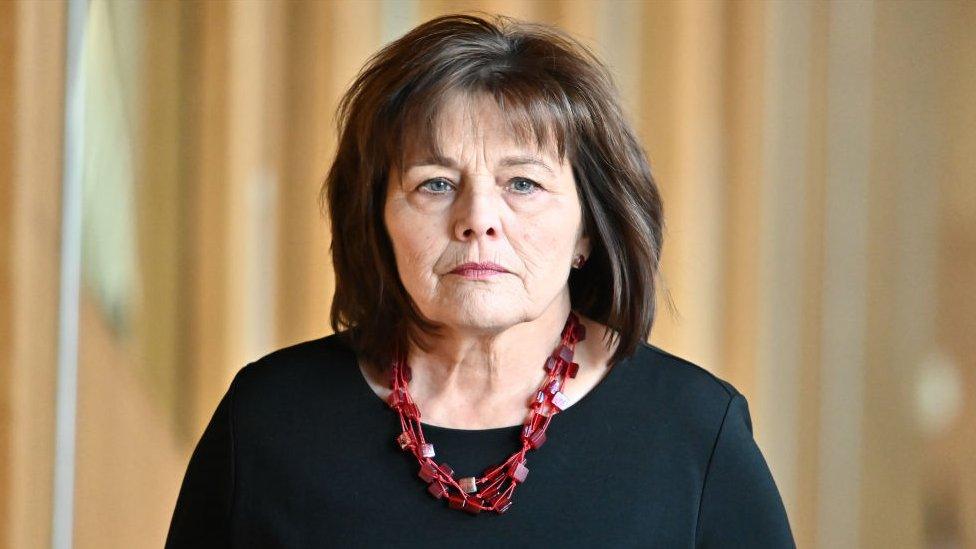Former health board boss quizzed at hospital inquiry
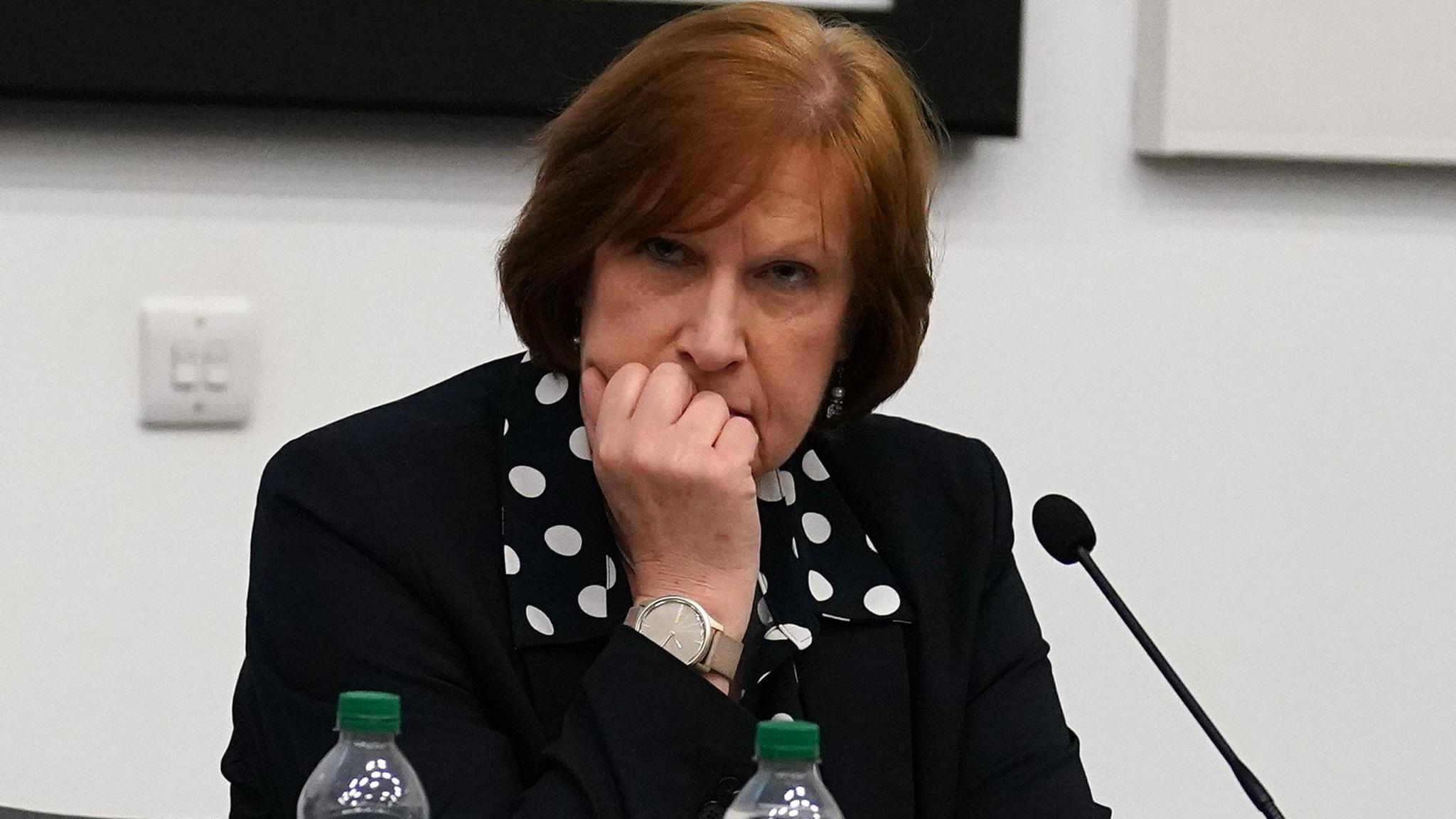
Jane Grant was chief executive of NHSGGC from 2017 until 2024
- Published
A former health board boss has been quizzed over two days as part of the latest phase of the Scottish hospitals inquiry.
Jane Grant, who led NHS Greater Glasgow and Clyde (NHSGGC) between 2017 and 2025, faced questions on Wednesday on how the health board communicated problems at the Queen Elizabeth University Hospital (QEUH) to the public.
The inquiry has been examining the design and construction of the £840m QEUH and the Royal Hospital for Children, which are on the same campus.
It was hailed as a world leading facility when it opened in 2015 but a series of unusual infection outbreaks and concerns around the water and ventilation systems began to emerge three years later - a number of patients died including 10-year-old Milly Main.
The inquiry will continue to hear from other key decision-makers in the coming weeks including former Scottish health secretary Jeane Freeman.
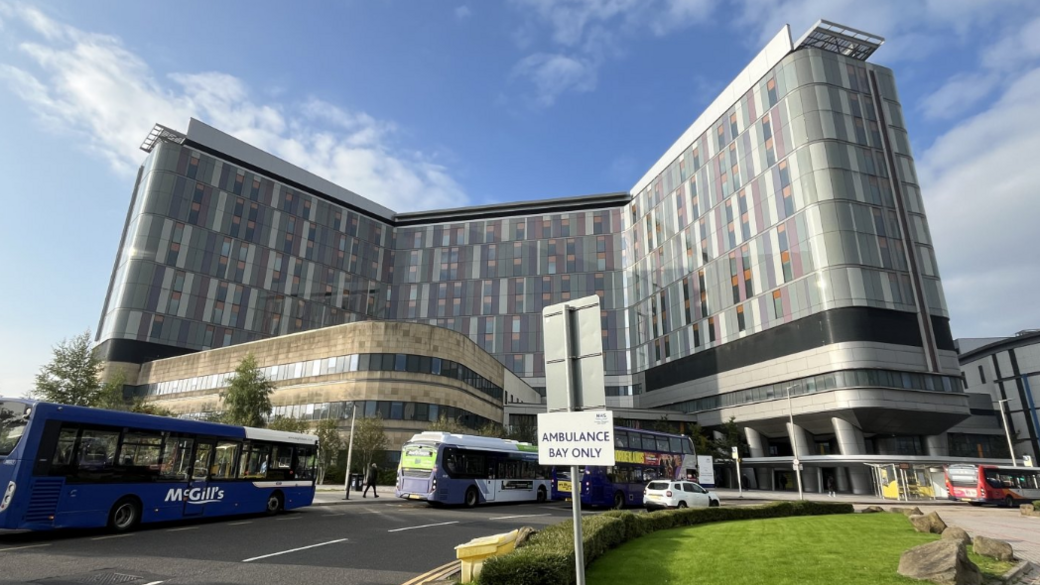
The Scottish hospital inquiry is considering evidence about problems at the QEUH
During a second day of questioning on Wednesday, Ms Grant was asked about how the hospital board communicated with families and patients following ventilation issues at the Glasgow hospital.
Ms Grant repeatedly said the health board was not trying to be "evasive" in the way it answered questions from the media and patients, but it found it hard to be "balanced" in its approach.
Inquiry counsel Fred Mackintosh KC asked the former chief executive if media statements issued by the health board were intended to soften the impact.
Ms Grant said: "I couldn't tell you if that was done or not."
She said she was sorry for the additional stress caused to families and patients "who already had incredibly difficult situations to deal with" and in hindsight this should have been dealt with differently.
Evidence from one parent, from 2021, described communication from the health board and families as "shocking".
Ms Grant said: "I think on reflection we should have paused and thought about how to engage with families at an earlier stage, because we were trying to get the normal routine processes to do that when perhaps we should have stepped in earlier."
Ms Grant also offered an apology to the families of outpatients who contracted infections after spending time at the hospital.
"I think we didn't pay enough attention to that at the beginning and we should have and I'm sorry about that," she said.
Ms Grant described the problems with the ventilation systems as "the most complex set of circumstances that I think certainly we had ever experienced, and I think probably the whole of the NHS in Scotland and maybe the UK."
Whistleblowers
On Tuesday, Mr Mackintosh asked Ms Grant about previous statements from former clinical director Dr Penelope Redding.
Dr Redding had told the inquiry that she was "urged not to whistleblow" on her infection risk concerns by Ms Grant.
Mr Mackintosh asked the former chief executive if she had effectively done so by urging Ms Grant to work with another colleague on the issue rather than proceed to a stage two whistleblowing report.
Ms Grant said: "No, absolutely not.
"That sentence was not about urging her not to do whistleblowing. If so I would have said that.
"It was more about trying to work collectively with those colleagues to make sure we get a solution."
Dr Redding also told the inquiry that she and other whistleblowers were treated as "troublemakers" by the health board.
Responding to this, Ms Grant said: "It's unfortunate that she felt that way. But certainly we were trying to take on board her concerns as part of that whole process."
Mr Mackintosh went on to ask Ms Grant about concerns with the water system at the Queen Elizabeth.
There was increased scrutiny of the hospital's facilities following April 2018, when there was an infection outbreak in the children's cancer wards.
In 2015 and 2017, experts DMA Canyon produced reports which outlined concerns with the hospital's water system, but these were only seen by senior managers at the health board in 2018.
Ms Grant said she was "quite shocked" and "anxious" when she first learned of these reports.
Earlier on Tuesday, Ms Grant told the inquiry it was "very difficult" to identify paperwork around a key decision on ventilation at the flagship hospital in Glasgow.
The inquiry, being held before Lord Brodie in Edinburgh, continues.
- Published19 August
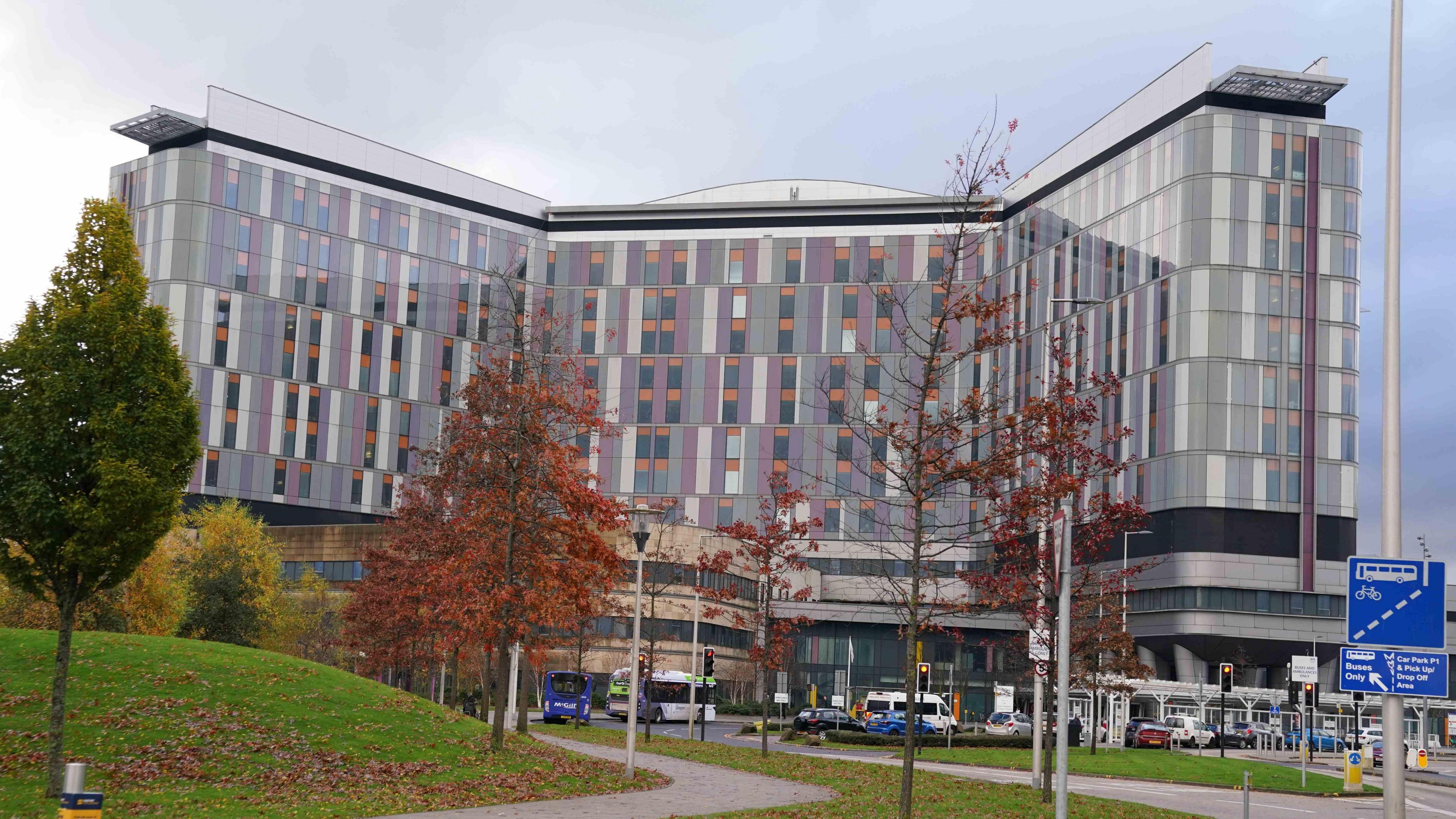
- Published28 August
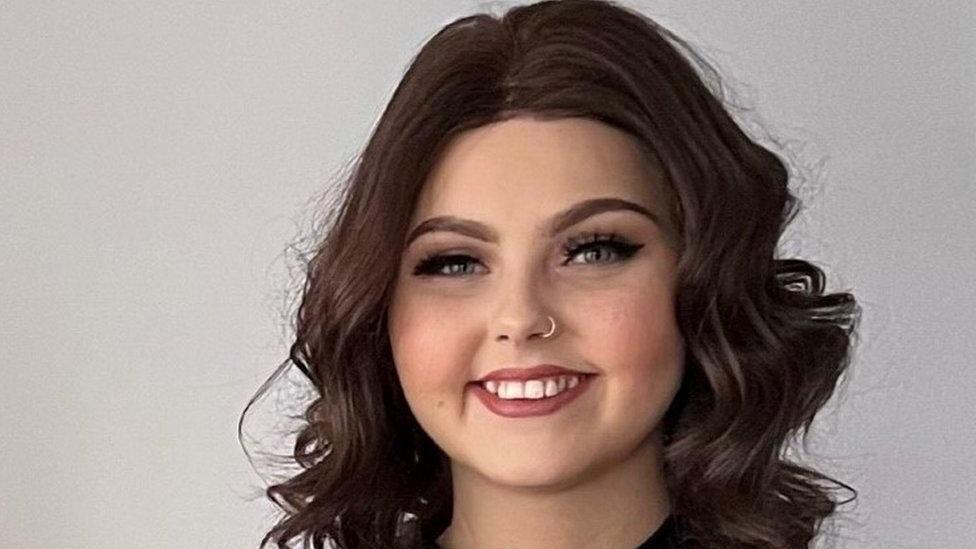
- Published12 March 2024
